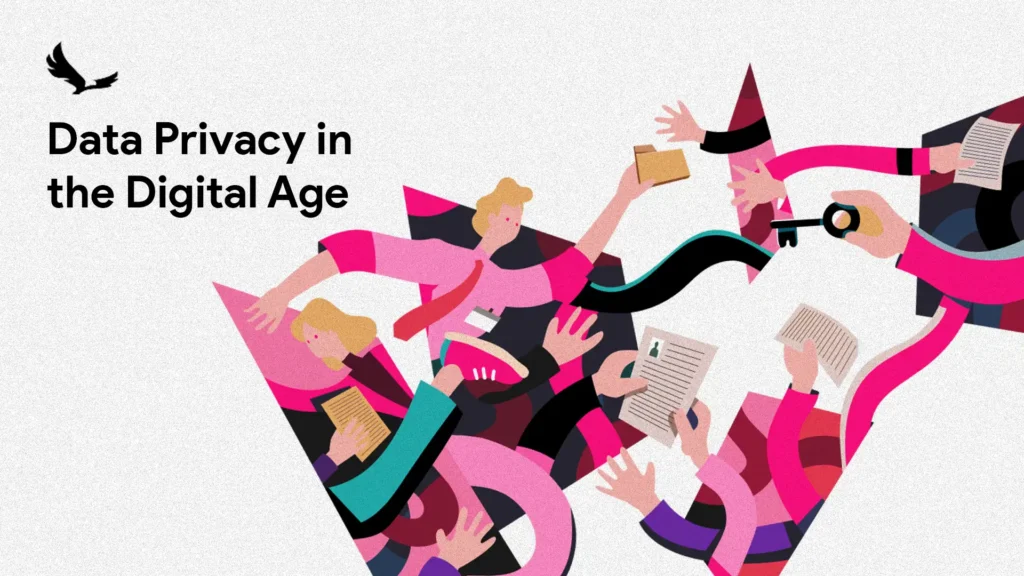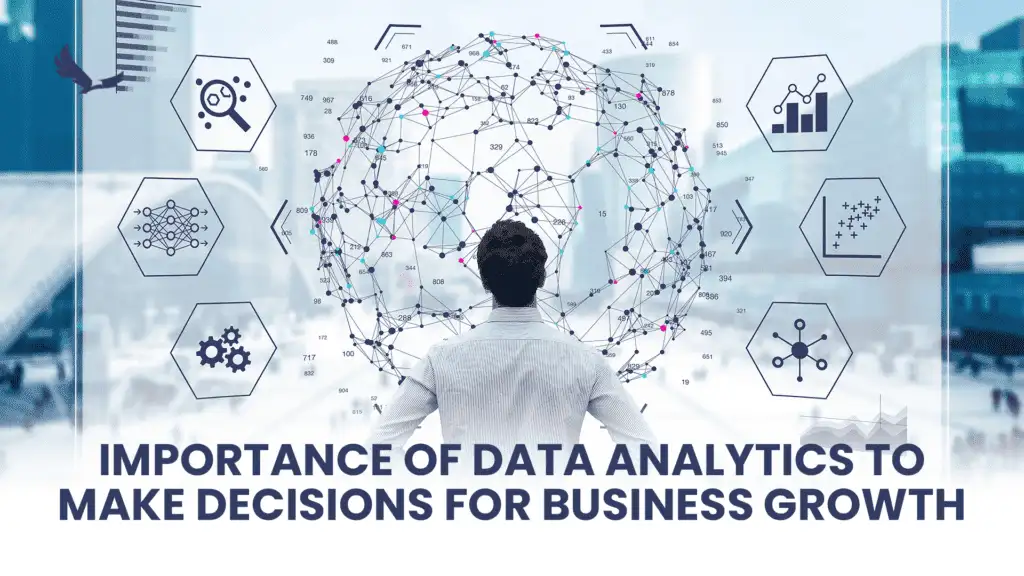Whether you’re an avid shopper or an IT expert, your life is likely intertwined with technology that delivers a truly personalized experience. The downside of hitting the search button every time you face a challenge is the growing privacy issues.
While the benefits are endless, from learning new skills to swiping dresses with a single click, the introduction of AI raises online security concerns. This blog will delve into the digital dilemma and data security measures necessary for confidential information protection:
A Quick Glance at Data Privacy
Before we explore the nitty-gritty of personal data protection, let’s look at the basics. Data privacy is all about fair usage, protection, and handling of confidential info, ensuring your data doesn’t fall into the wrong hands.
Whether you live in the US or Asia, there are numerous privacy legislation to ensure secure data handling. Think of the COPPA law in the USA or GDPR compliance in Europe that protects children’s info and requires parental consent.
So, in a world where tech collects data from numerous sites, understanding data privacy empowers you to learn and maintain control over how sites use and share your info.
Top Six Data Privacy Challenges You Need to Know
Before you click on the suspicious email sitting in your inbox, here are several data privacy concerns to know:
An Increase in Data Breaches and Cyberattacks
The number of high-profile data breaches has increased significantly, rising from a mere 447 to a stunning 1800 in 2022. As AI expands, cybercriminals innovate more sophisticated techniques to exploit your systems, capture confidential data, and conduct fraud.
Thus, as artificial intelligence continues to ‘wow’ people across every profession, it also provides cybercriminals with the tools to exploit vulnerabilities in their systems.
The Proliferation of Confidential Data
We’ve all come across ads that make us wonder, ‘Does Google know what I’m thinking?’ While that’s unlikely, the explosion of data creation and collection eases the dispersing of information.
So, as you scroll on Insta, visit an educational website, or purchase your favorites, the company and government gather your data. This raises a huge red flag about who has access to the intimate details of your lives (or even your brand!).
A Lack of Awareness of Digital Age Privacy
If you don’t have the most tech-savvy team, it’s time you introduce cyber security training. The intricacies of privacy legislation can make you want to tear your hair out, making you the perfect target for cybercriminals.
Besides, not knowing the complexities of data protection laws can make you (+ your company) vulnerable to malevolent attacks, viruses, and similar malware.
The Non-Standardization of Privacy Policy Guidelines
For multinational companies, freelancers, and individuals with long-distance relations, the Internet is a true blessing. The problem? The differing data privacy standards create discrepancies in protection laws, leaving a big ‘?’ in your mind.
While these legislations are a step in the right direction, the differences can create challenges for brands creating company laws.
The Expansion of AI and IoT Technology
As technology revolutionizes (read: AI and IoT expands) to transform your daily life, it also brings a host of data privacy concerns. Think artificial intelligence algorithms that make decisions based on confidential info harvested from brands or the government.
The Collection and Monetization of User Data
Many tech brands, retailers, and marketers focus on gathering and monetizing your information. Through tracking cookies, these companies can quickly learn when and what you’re doing.
So, it’s no surprise this activity raises concerns about how companies and search engines utilize confidential data without your knowledge.
How Should You Combat Online Privacy Concerns?
Good news: there are ways to mitigate personal data threats! Let’s take a look at the four cybersecurity best practices to keep your confidential info safe from cybercriminals:
Two-factor Authentication and Data Encryption
Individuals who use two-factor authentication, whether an SMS text or Email notification, give security a new meaning. While you may have to go through the trouble of copy-pasting codes, you’ll add an extra security layer to fight off cybercriminals.
If you’re thinking, ‘This doesn’t sound nearly enough,’ implementing encryption methods can take your data protection to the next level. You’ll no longer have to worry about attackers gaining unauthorized access to confidential info.
Courses to Raise Awareness about the Cyber Threat Landscape
Brands that invest in user education workshops and training can ensure no individual is vulnerable to malicious attacks. Your team will appreciate the effort, and you won’t have to worry about them pressing hit on a phishing email.
Furthermore, you should stay up-to-date with the latest legislation, privacy regulations, data breaches, and ongoing data security trends.
Virtual Private Networks to Hide Your IP Address
A VPN isn’t just a solution to watching your favorite Netflix show; it’s a vital tool for encrypting your internet connection and protecting your data. With a virtual private network, whether you’re sitting at a coffee shop or on the subway, you can surf without worrying about malicious actors.
The best part is sites and cybercriminals can’t track, gather, or sell your data for profit!
Blockchain Tech to Store and Manage Personal Data
Your brand doesn’t have to spend a fortune on fighting off cyberattacks with blockchain technology. Instead, you can decentralize data management and enjoy better control by allowing you to track who accesses your info.
This way, you can take proactive actions against cybercriminals before they gather your confidential info and spread malware.
Privacy Regulations Compliance and Legal Data Protection
If you’re a website owner, you must familiarize yourself with global and local privacy regulations, such as GDPR, CPPA, and COPPA. Don’t stop there; regularly review and update your privacy settings to ensure you’re always a step ahead of cybercriminals.
Besides, you can implement privacy risk management practices by creating data backup to ensure you don’t have to worry about accidental loss.
The Bottom Line
As digitization takes the stage, brands and individuals alike face data privacy concerns. Whether it’s a suspicious email or a malignant malware, knowing these personal protection challenges is crucial to protecting yourself and your website.
With these five fabulous cybersecurity moves, you won’t just be surfing the digital wave – you’ll ride it like a pro! It’s all about strutting into the cyber scene with some swagger, taking proactive steps, and staying as up-to-date as your favorite meme to safeguard your top-secret info.




